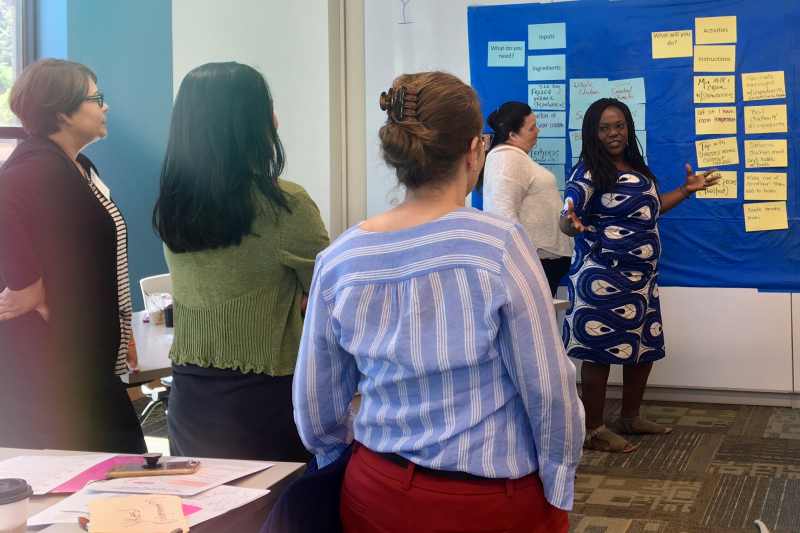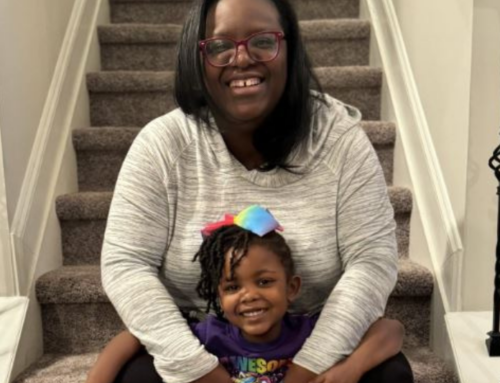At Change Matrix (CM), we describe ourselves as capacity builders who engage in exploration and inquiry with youth, families, leaders and communities to set goals, define outcomes, and manage change. At the heart of our approach is a deep belief that people of all ages and stages of life have assets and lived experiences that should be honored and harnessed. We know that real transformation happens when the people we support drive their own decisions and change efforts.
Here we share with some recent examples of CM work that has served to encourage youth and fully engage families:
Community Partnerships for Health Equity (CPHE) – Many communities throughout Colorado are working to obtain and sustain promising futures for their towns and their residents. A key component of this is creating training for youth to develop essential skills and opportunities to use those talents to build up their home communities. Across communities is the want and need to engage youth in these efforts. Looking forward at our work as the empowerment evaluator team, we will work with local evaluators to authentically involve youth in evaluations. Rather than simply being respondents, youth will help in planning, conducting, and analyzing the evaluations of their community’s efforts. We look forward to working with communities to integrate youth into these efforts and spark excitement around evaluation and movement towards whole-community equity and prosperity. (See image above: Change Specialists Sandra, Rachele, and Naomi (left to right) engaging family and youth advocates, making evaluation familiar through the CPHE project with The Colorado Trust)
Project LAUNCH (Linking Actions for Unmet Needs in Children’s Health) – Family Strengthening is one of the five key strategies applied to Project LAUNCH’s early childhood systems building work. Understanding that parenting is a relationship and not a skill provides a frame for resiliency in times of stress and trauma. As technical assistance providers, we use this frame in our work with programs so that when discussing family strengthening approaches and activities we are more likely to address the work from a cultural perspective. This approach leads to actual support and leadership development of families that encourages the formation of meaningful partnerships between them and LAUNCH-related policy makers and service providers.
Healthy Transitions (HT) – Engaging youth and young adults is a core element of the Healthy Transitions Initiative. Because of that strong focus, several grantees wondered about and were challenged to continue to engage families and caregivers with the same effort that is made in systems of care for children. Youth and young adults who are supported by families have a smoother transition to adulthood. For that reason CM worked with HT grantees in a number of sites to hold space for conversations about their role and best practices to support youth and young adults.
Home Visiting Improvement Action Center (HV-ImpACT) – In support of the Maternal, Infant, and Early Childhood Home Visiting (MIECHV) Program’s technical assistance center, HV-impACT, CM plays a role as TA providers and subject matter experts, and is also involved in contributing to the design and moderation of communities of practice and webinars. Through this role, we work with awardees (state and territories) on a variety of issues, all ultimately benefiting children, youth, parents, and families. The home visiting services offered through this Federally-funded program are voluntary, and actively and intentionally engaging parents and families is essential for any successful outcomes, such as improved health outcomes, improved learning, improved financial literacy, safer homes and families, and stronger families as a whole. Many parents enrolled in home visiting are, themselves, youth – they are young parents, and many of them are teen parents. In addition to supporting awardees in their efforts to improve parent and family engagement strategies, Change Matrix and other TA partners also help programs find strategic ways to involve families in other integral ways – for example, by inviting them to join parent advisory committees, providing leadership training, and involving them in CQI efforts. Considering the value that we at Change Matrix place on cultural responsiveness and cultural competence, a focus on tailoring approaches and meeting people where there are is a natural fit. Families, parents, youth have their own culture and each family, for that matter, has their own unique culture as well. We help awardees (and, in turn, communities and families) be more culturally competent wherever we can — for example, tailoring their implementation of this Federal program to meet the needs of each individual family. Some mechanisms for doing this is through facilitating peer-exchanges, and by helping awardees develop training materials, policies, and procedures that focus on involving families in a meaningful way. We also ask critical questions of awardees, project officers, and other team members to ensure that cultural competence is woven throughout what we all do.
Here are a few related resources for you:
- View the slides from Change Specialist Shannon CrossBear’s webinar on Family Driven, Youth-Guided SOC (pdf)
- View this tip sheet from the MIECHV Program Partnering with Families in Continuous Quality Improvement (pdf)
- Download the resource guide from the Early Childhood Investment Corporation and Michigan’s Great Start Collaborative on Parent Leadership on the Great Start Collaborative (pdf)
- Use this resource sheet from Youth MOVE National on Strategic Sharing, a #things2consider guide to help youth tell their stories to inspire action and change (pdf)




